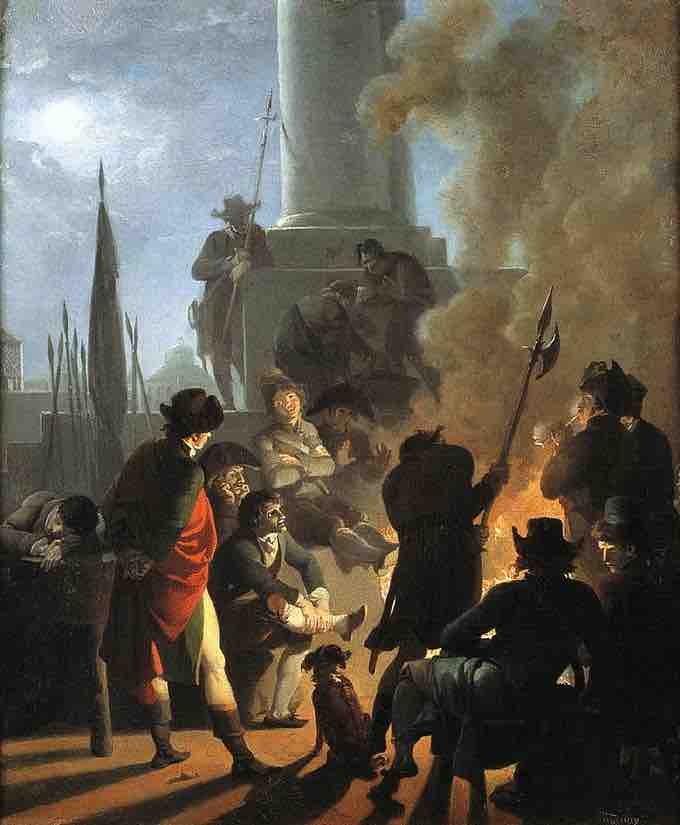Democracy is an egalitarian form of government in which all the citizens of a nation together determine public policy, the laws, and the actions of their state. It requires that all citizens (meeting certain qualifications) have an equal opportunity to express their opinion. In practice, democracy is the extent to which a given system approximates this ideal. A given political system is referred to as a democracy if it allows a certain approximation to ideal democracy. Although no country has ever granted all its citizens (i.e. including minors) the vote, most countries today hold regular elections based on egalitarian principles, at least in theory.
The most common system that is deemed democratic in the modern world is parliamentary democracy in which the voting public takes part in elections and chooses politicians to represent them in a legislative assembly. The members of the assembly then make decisions with a majority vote. A purer form is direct democracy in which the voting public makes direct decisions or participates directly in the political process. Elements of direct democracy exist on a local level and in exceptions on the national level in many countries, although these systems coexist with representative assemblies.
The term democracy comes from the Greek word δ (dēmokratía), "rule of the people," which was coined from δ (dēmos), "people," and κ (kratia), "rule," in the middle of the 5th-4th century BCE to denote the political systems then existing in some Greek city-states, notably Athens following a popular uprising in 508 BCE. Other cultures since Greece have significantly contributed to the evolution of democracy, such as Ancient Rome, Europe, and North and South America. The concept of representative democracy arose largely from ideas and institutions that developed during the European Middle Ages and the Age of Enlightenment and in the American and French Revolutions. The right to vote has been expanded in many jurisdictions over time from relatively narrow groups (such as wealthy men of a particular ethnic group), with New Zealand the first nation to grant universal suffrage for all its citizens in 1893.
Elements considered essential to democracy include freedom of political expression, freedom of speech, and freedom of the press, so that citizens are adequately informed and able to vote according to their own best interests as they see them. The term "democracy" is often used as shorthand for liberal democracy, which may include elements such as political pluralism, equality before the law, the right to petition elected officials for redress of grievances, due process, civil liberties, human rights, and elements of civil society outside the government. Democracy is often confused with the republic form of government. In some definitions of republic, a republic is a form of democracy. Other definitions make republic a separate, unrelated term.
While there is no universally accepted definition of democracy, equality and freedom have both been identified as important characteristics of democracy since ancient times. These principles are reflected in all citizens being equal before the law and having equal access to legislative processes. For example, in a representative democracy, every vote has equal weight, no unreasonable restrictions can apply to anyone seeking to become a representative, and the freedom of its citizens is secured by legitimized rights and liberties which are generally protected by a constitution.
According to some theories of democracy, popular sovereignty is the founding principle of such a system. However, the democratic principle has also been expressed as "the freedom to call something into being which did not exist before, which was not given … and which therefore, strictly speaking, could not be known. " This type of freedom, which is connected to human natality, or the capacity to begin anew, sees democracy as "not only a political system… [but] an ideal, an aspiration, really, intimately connected to and dependent upon a picture of what it is to be human—of what it is a human should be to be fully human. "
In the United States, separation of powers is often cited as a central attribute, but in other countries, such as the United Kingdom, the dominant principle is that of parliamentary sovereignty (whilst maintaining judicial independence). In other cases, democracy is used to mean direct democracy. Though the term "democracy" is typically used in the context of a political state, the principles are applicable to private organizations and other groups as well.
Majority rule is often listed as a characteristic of democracy. However, it is also possible for a minority to be oppressed by a tyranny of the majority in the absence of governmental or constitutional protections of individual or group rights. An essential part of an ideal representative democracy is competitive elections that are fair both substantively and procedurally.

The French Revolution and the Birth of Democracy
This painting, called Le bivouac des sans-coulottes, depicts a scene from the French Revolution, which ushered in democracy in France.